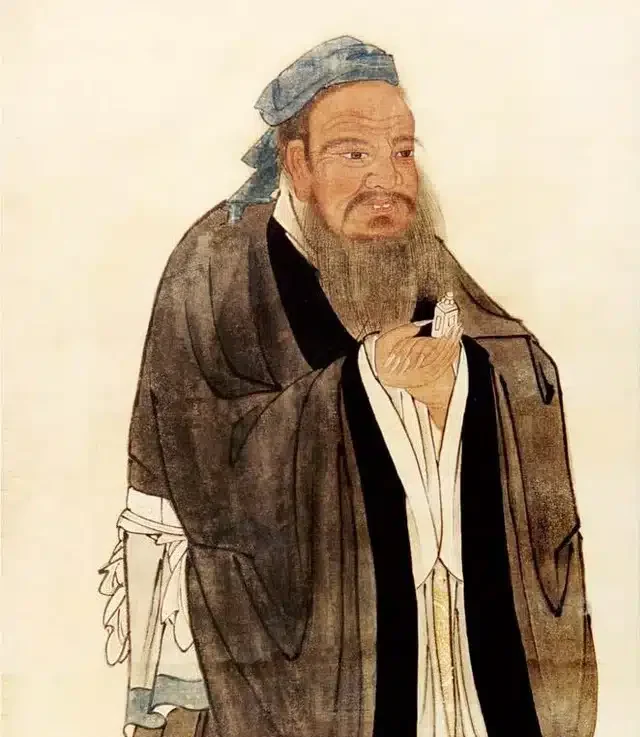Confucius, known as Kong Fuzi or Master Kong, was born in 551 BCE in the state of Lu, in present-day Shandong province, China. His teachings, which emphasize morality, ethics, and the importance of social harmony, have profoundly influenced Chinese civilization and East Asian cultures for over two millennia. As the founder of Confucianism, Confucius’s ideas continue to shape philosophical thought, government, education, and personal conduct. This article delves into the life, teachings, and enduring legacy of Confucius.
Early Life and Background
Birth and Family
Confucius was born into a family of modest means. His father, Kong He, was a military officer, and his mother, Yan Zhengzai, came from a humble background. According to tradition, Confucius’s father died when he was three years old, leaving his mother to raise him in poverty. Despite these challenges, Confucius’s mother ensured he received a good education, instilling in him a love of learning and a strong sense of moral integrity.
Education and Early Influences
From a young age, Confucius displayed an insatiable curiosity and a passion for knowledge. He studied various subjects, including history, music, and poetry, and was particularly influenced by the ancient texts known as the Five Classics. These works would later form the foundation of Confucian thought. Confucius’s early education set the stage for his future role as a teacher and philosopher.
Career and Teachings
Early Career
Confucius began his career in public service, holding various minor governmental positions in the state of Lu. However, his desire to implement his ethical and political ideas led him to pursue a more significant role in governance. Despite facing resistance and political obstacles, Confucius remained committed to his vision of a just and harmonious society.
Core Teachings
Confucius’s teachings are centered around several key principles, which have become the foundation of Confucianism:
Ren (Benevolence)
Ren, often translated as “benevolence” or “humaneness,” is the central virtue in Confucian thought. It emphasizes the importance of empathy, compassion, and kindness in human interactions. Confucius believed that a truly virtuous person would act with ren in all aspects of life, treating others with respect and consideration.
Li (Ritual Propriety)
Li refers to the proper conduct and rituals that govern social behavior. Confucius emphasized the importance of observing traditional rituals and customs, as they promote social harmony and maintain the moral order. Li encompasses various aspects of life, including manners, ceremonies, and respect for authority and family.
Xiao (Filial Piety)
Xiao, or filial piety, is the virtue of showing respect and devotion to one’s parents and ancestors. Confucius believed that family relationships are the foundation of society, and filial piety is essential for maintaining social harmony. Xiao involves honoring one’s parents, caring for them in old age, and continuing family traditions.
Yi (Righteousness)
Yi is the principle of righteousness and moral integrity. It involves doing what is right and just, regardless of personal gain or loss. Confucius taught that individuals should act according to moral principles and uphold justice, even in the face of adversity.
Zhi (Wisdom)
Zhi, or wisdom, is the ability to make sound judgments and decisions based on knowledge and moral principles. Confucius believed that wisdom comes from continuous learning and self-reflection. A wise person seeks to understand the world and acts in accordance with ethical values.
Influence and Legacy
Confucianism
Confucianism is not just a philosophy but a comprehensive way of life that encompasses ethics, politics, education, and personal conduct. Confucius’s teachings were compiled by his disciples in the Analects, a collection of his sayings and ideas. Over time, Confucianism became the dominant philosophical and ethical system in China, influencing the development of Chinese culture, government, and society.
Impact on Chinese Government and Society
Confucius’s ideas on governance and leadership had a profound impact on Chinese political thought. He advocated for a meritocratic system where rulers and officials are chosen based on their moral qualities and abilities, rather than their social status or wealth. Confucianism became the basis for the civil service examination system, which was used to select government officials in imperial China for over a thousand years.
Education and Scholarship
Confucius placed a strong emphasis on education and the pursuit of knowledge. He believed that education is the key to personal development and social progress. His ideas on teaching and learning have had a lasting influence on Chinese educational practices and institutions. Confucius’s approach to education, which emphasizes the cultivation of moral character and intellectual growth, continues to be valued in Chinese society and beyond.
Challenges and Criticisms
Opposition and Exile
Throughout his life, Confucius faced opposition and criticism from political leaders and rival philosophers. His attempts to implement his ideas in the government of Lu were met with resistance, leading to his voluntary exile. During his years of wandering, Confucius continued to teach and spread his ideas, gaining followers and disciples who helped preserve his teachings.
Criticisms of Confucianism
Confucianism has faced criticism for its perceived conservatism and emphasis on hierarchical relationships. Critics argue that Confucian ideals can reinforce social inequalities and limit individual freedom. Despite these criticisms, Confucianism has proven to be a resilient and adaptable philosophy, evolving over time to address changing social and political contexts.
Modern Relevance
Revival of Confucianism
In recent years, there has been a revival of interest in Confucianism, both in China and internationally. Confucian values, such as respect for elders, emphasis on education, and pursuit of social harmony, are being reexamined and integrated into contemporary society. Confucius Institutes, which promote Chinese language and culture, have been established worldwide, reflecting the enduring influence of Confucian thought.
Influence on Global Philosophy
Confucius’s teachings have transcended cultural boundaries, influencing philosophical thought and ethical practices around the world. His ideas on morality, leadership, and social responsibility resonate with contemporary global challenges and offer valuable insights for addressing issues such as social justice, environmental sustainability, and ethical governance.
Conclusion
Confucius’s life and teachings have left an indelible mark on Chinese civilization and the world. His profound insights into human nature, ethics, and governance continue to inspire and guide individuals and societies. As the philosopher who defined Chinese thought, Confucius’s legacy endures, reminding us of the timeless importance of compassion, wisdom, and moral integrity in our personal and collective lives.

